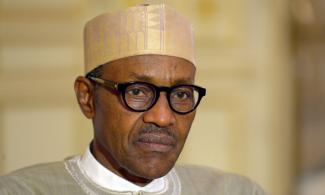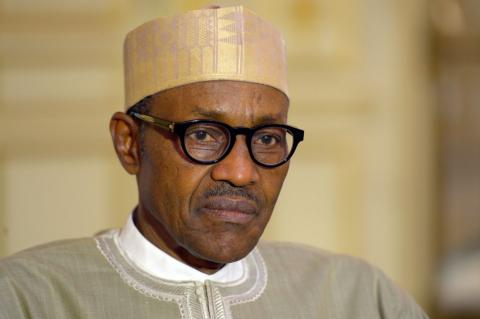
The “change begins with me” campaign of the federal government of Nigeria is running into obstacles. One of the latest undesirable hitches is plagiarism of President Obama’s speech in the text of President Buhari’s statement delivered at the recent launch. News, opinions, reports, commentaries and jokes in print, electronic and online media are full of subtle and scathing attacks on the campaign.
A major argument of some critics is that change begins with the leadership that had promised change but is backpedaling on its responsibility for it, and turning it over to the populace. Another line of criticisms is that the targeted change is undefined, nebulous and opaque. The nuts and bolts of “change begins with me”, it is argued, are as unclear as many policy issues that the President Buhari administration pursues. Put together, the contextual issues around change do not align with the new campaign.
In communication theories, change is a well-trodden area. Human communication is replete with uses of communication to effect change of knowledge, attitudes, practice and behavior. Change communication underlies the intellectual discourse of behavior and social modifications as a critical step towards change. The “change begins with me” campaign, whether stated or not, is premised on the thesis that change of behavior by Nigerians can and should result in change of the Nigerian society. The behavior change of citizens will, over time, aggregate to social change of the Nigerian nation. It is, theoretically, a solid basis to build an action programme. This must have been what Minister of Information and Culture, Alhaji Lai Mohammed, had in mind.
It is widely accepted that change of behavior, and ultimately change of society, is complex. It is hardly linear. It requires collaboration of communication with sociology, psychology, anthropology and related fields of human interactions. Extensive studies in change communication show that “good intentions” are far from adequate. In other words, no matter, how well intentioned a change idea is, it does not by fiat materialize into acceptance by the community or society where the change is advantageous or sensible.
In development communication, examples of good intentions leading to bad outcomes are soberly common. Whether it is smoking, driving while intoxicated or use of seat belts, change of habits and behavior is arduous. For example, health promotion campaigns that focused on negative health impacts of smoking achieved little for decades. Facts on the nefarious health effects did not discourage reasonable, knowledgeable smokers. The breakthrough came in many countries by making smoking appear so “un-cool”, unfashionable, repulsive, anti-social to “right –thinking” persons. And it was combined with treatment medications, psychosocial approaches, alongside policies and legislation that made cigarettes expensive; smoking was barred from public spaces; and smokers were restricted to corner spaces of undesirability.
Campaigns against driving whilst intoxicated is witnessing increasing successes in countries that combine special attention to what should be done when one drinks – designate a driver who does not drink alcohol at that occasion, have colleagues monitor each other’s alcohol consumption levels, have bar tenders take charge and restrict drunk drivers, use taxis to return home – with stringent checks by police officers as people leave parties and drinking places. Tough legislations penalize drunk driving, including heavy fines, temporary or permanent ban from driving.
Advertisers and marketers, to mention a few, use change communication extensively to create acceptance of new products, or to effect change from existing services to newly available ones. It works.
Success in change of behavior and society is grounded in theoretical understanding of people and society, and adaptation of knowledge from empirical studies. Behaviour modification and change does not happen quickly. There are short, medium and long term phases, and some successes can be recorded, even in the short term phase when norms begin to be questioned and re-ordered.
Without enough understanding of the work – theories, studies, processes – that inform Nigeria’s “change begins with me” campaign, it is difficult to say much about it. However, given the official actions and criticisms of it, some points are well in order.
President Buhari and his All Progressives Congress (APC) party was voted in on the platform of “change”. The massive voters’ support confirmed that change was awaited and would be supported. How will change occur? The first positive signal is that the leadership should demonstrate change.
Whilst the government, during its 16-month tenure, succeeded convincingly in dealing decisively with Boko Haram, it is yet to show that it can deal with security in its many ratifications. See how long it took to have any serious official pronouncement on herdsmen who ravage farms and villages, kill and maim people.
Also, whilst government struggles to rein in the spreading kidnap menace, the Niger Delta insurgents appear to thrive under various names. And the initial official commitment to locate the abducted Chibok Girls has fallen by the wayside. Rather, the Police harass peaceful protesters who serve as a constant beacon of the historic tragedy bleeding the nation.
Corruption, another pillar of the campaign manifesto of the government, has seen some positive efforts at curbing it. But even the consternation and anger of people as revelations of massive looting were revealed is now being dulled by time and inconclusive lengthy processes that drag on. It is apparent that some officials, especially civil servants and law enforcement agents, are falling back willfully into old ways of public bribe-taking and oppression of the people for the slightest reasons. Not only national budgets are “padded” under the nose of the change leadership, contracts are being padded heavily again. The fight against corruption is being cast as “Buhari’s thing”. His immediate entourage, collaborators and, especially, state governments are not even remotely part of any obvious anti-corruption efforts.
The dark cloud that covers the nation right now is economic and financial difficulty. It hangs like a giant elephant tusk on the neck of the masses and so-called middle class. It drags people down, into anger, intolerance and hopelessness. The people want to hear more on how and when it will change.
Candidly, everything seems right about the wording and need for “change begins with me”. But political communication of contradictory verbal and non-verbal exchange is problematic. The entirety of change should be manifested in many more areas and should be read, heard, seen, and interpreted - without doubt. The government, with its main pillars of change agenda in doubtful suspense, cannot expect its subjects to trust that it can lead or sustain change.
Bunmi Makinwa is the CEO of AUNIQUEI Communication for Leadership and former Africa head of United Nations Population Fund
